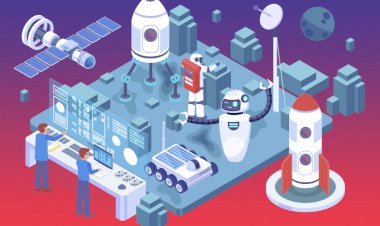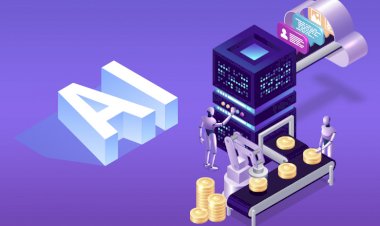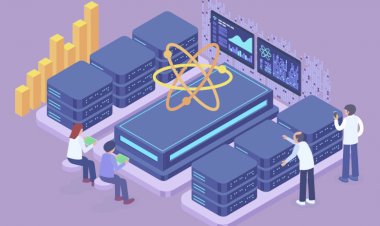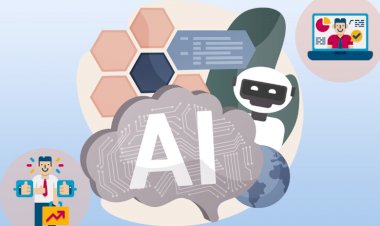How Will Artificial Intelligence Change the Future of Gaming?
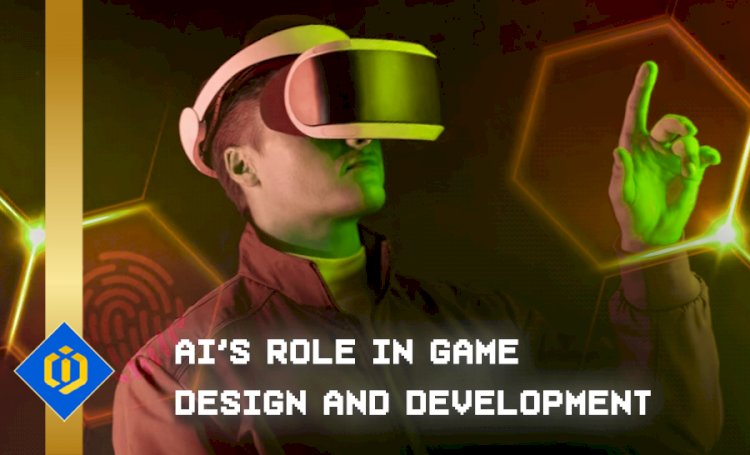
Introduction: AI is becoming more and more significant in game design and development as the gaming industry continuously changes. AI is redefining how games are created and played, from image enhancement to game level generation to giving non-playable characters intelligence. The potential of AI in the gaming sector and how it is transforming the gaming landscape will be discussed in this article.
AI's role in improving game graphics is one of the most significant ways it is transforming the gaming sector. Through the use of methods like super-resolution, anti-aliasing, ray tracing, and others, AI can enhance the visual quality of video games. Players will have a better gaming experience thanks to these techniques, which enhance games' realism and immersion.
AI's capacity to generate new, varied game levels based on user preferences or existing data is also well-documented. AI can now create levels that are special and catered to the preferences of every player, according to this. By offering players new obstacles and experiences, this keeps the gameplay exciting and novel.
AI is also capable of creating dynamic, immersive stories that change based on the player's decisions and actions. This makes the game more interactive and engaging because the player's choices directly affect the story.
Balancing In-Game Complexity with AI: AI can also modify the game's challenge and difficulty based on the player's skill level and feedback. As a result, players can take pleasure in a game that is difficult but not frustrating because it adjusts to their level of expertise.
AI Can Give Non-Playable Characters Intelligence: AI can give non-playable characters intelligence and make them more realistic, interactive, and responsive. Techniques like decision trees, neural networks, natural language processing, and others are used to accomplish this. This increases the game's overall immersion by allowing non-playable characters to react to the player's actions in a more realistic and compelling way.
Blending Gaming with Real-World Experiences: AI is also changing the gaming industry by fusing it with real-world encounters. As a result, games become more interactive and engaging when they can be played in actual environments. For instance, augmented reality is used in games like Pokemon Go to make the virtual world come to life in the real world.
AI Possibilities Expanding the Future of Gaming: AI has enormous potential in the gaming sector and is opening up new avenues for gaming in the future. AI is revolutionizing game design and gameplay, giving players more immersive and captivating experiences.
In conclusion, AI is playing a bigger and bigger role in game design and development as the gaming industry develops. AI is fundamentally altering how games are created and played, from image enhancement to the creation of varied game levels to the addition of intelligence to non-playable characters. The potential for innovation and expansion in the gaming sector is limitless as AI develops further.
An Analysis by Pooyan Ghamari, Swiss Economist with Expertise in the Digital World
References:
- https://www.gamasutra.com/blogs/SebastianDuchene/20210216/377502/The_Role_of_AI_in_Game_Development.php
- https://venturebeat.com/2021/07/02/ai-is-powering-a-revolution-in-video-game-design/
- https://www.forbes.com/sites/forbestechcouncil/2021/07/08/ai-and-the-blurring-line-between-virtual-and-real-gaming-worlds/?sh=6f01c91274c8
- https://www.business-standard.com/article/technology/how-ai-is-empowering-the-future-of-gaming-120091200354_

 content-team
content-team 



